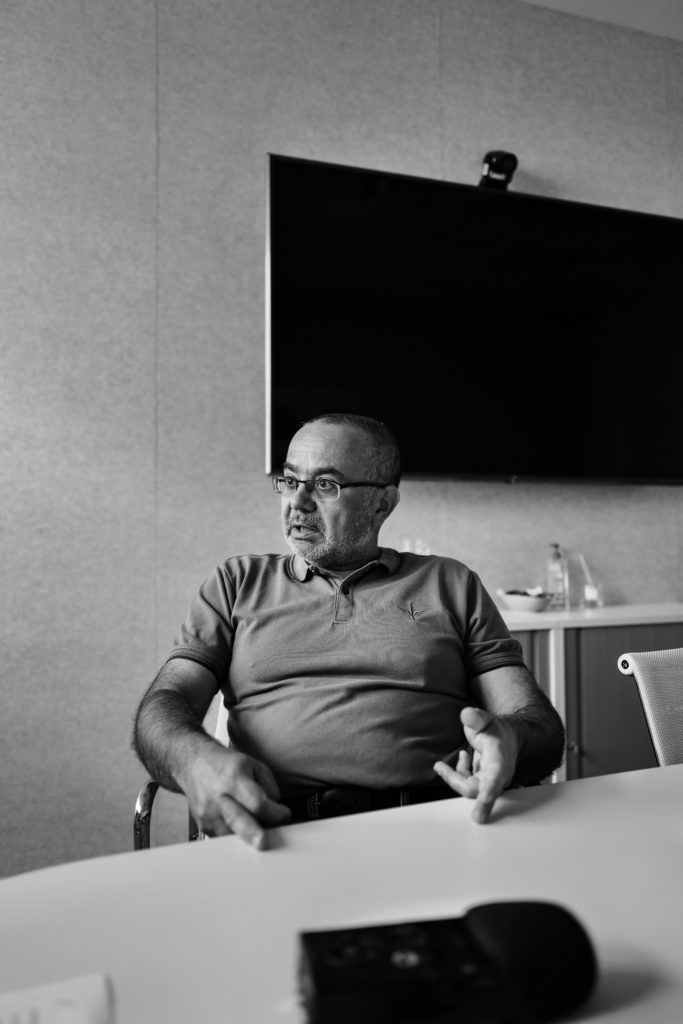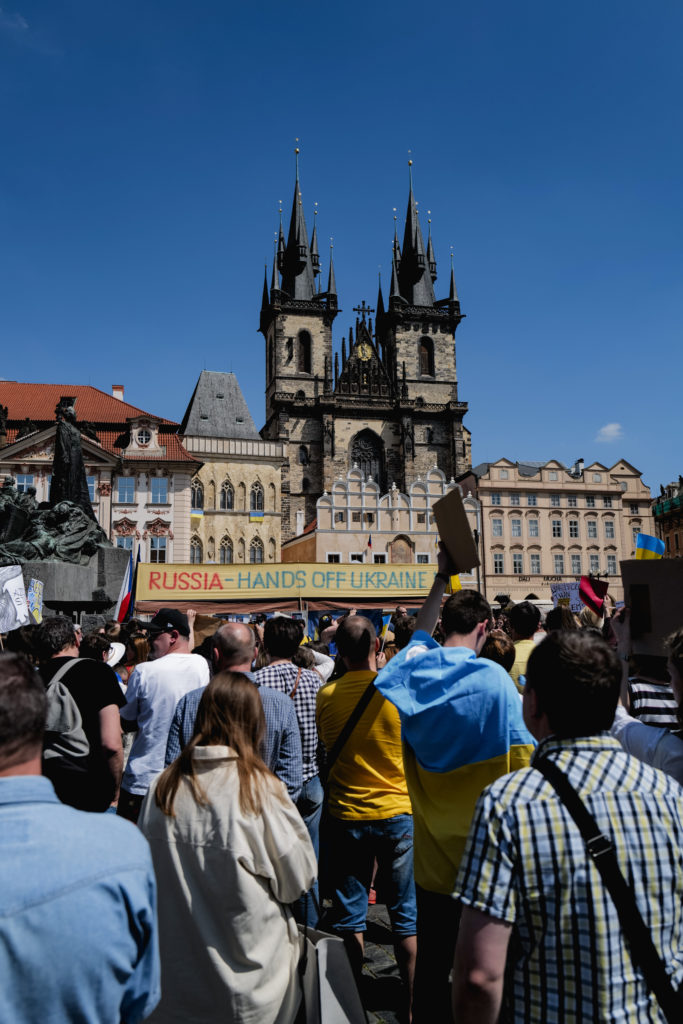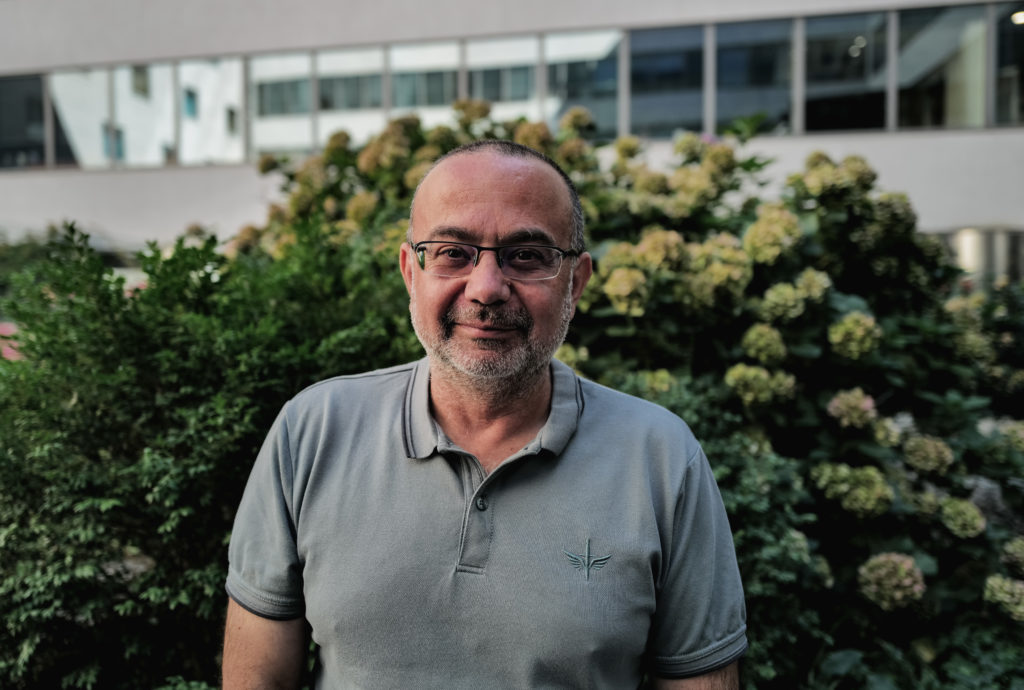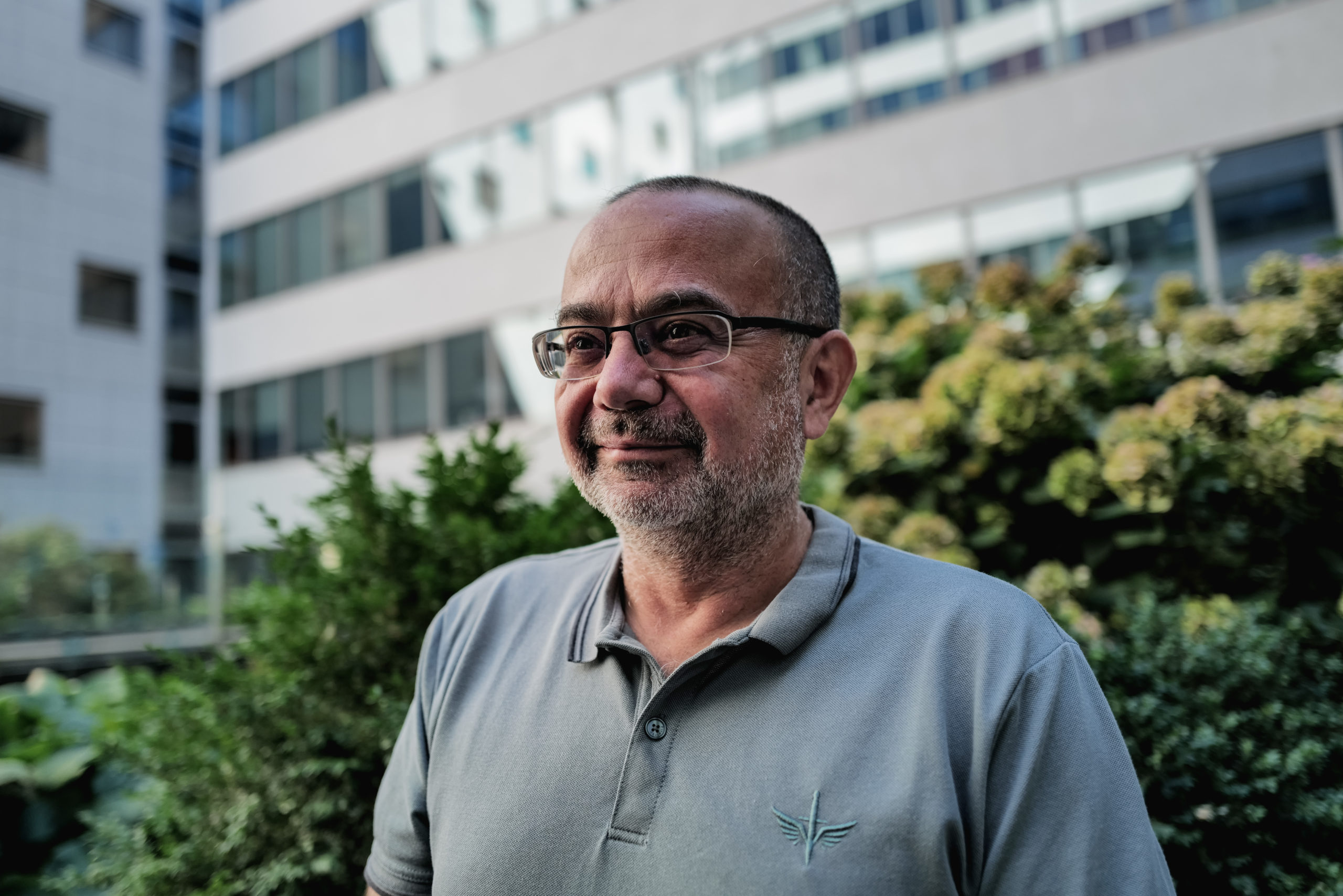Narrative 1: Ukraine is an artificial state, it should naturally belong to Russia
An argument that was already stated in 2014, i.e., at the time of the Crimean crisis and the first instance of open Russian aggression against Ukraine. “The Russians say that their incursions are justified because Ukraine, including Crimea, is an artificial entity that has always belonged to Russia. Allegedly, they are taking back what is naturally theirs,” explains Michael Romancov. Similar rhetoric is also used by some of the Russian political elites in relation to the Baltic republics. But in reality, all states are artificial and created by man, nature did not give rise to any.
Among the existent states, we would be able to find entities that can base their existence on long-term continuous development, but we also come across states whose development is completely disjointed. “Poland, for instance. Historically, its borders have changed rapidly, it has disappeared and re-formed several times, but nowadays, no one in Europe questions its existence or claims that the Poles are not a nation,” Romancov states. The borders of Czechoslovakia also changed several times, either during the protectorate period, or after 1945, when Czechoslovakia lost Subcarpathian Rus, which became Transcarpathian Ukraine and a part of the Soviet Union. At that moment, Czech and Ukrainian history directly intersected.
The formation of Ukraine was therefore also discontinuous. The beginnings of the state date back to the 19th century when local residents began to differentiate themselves from other cultures. A similar development took place in many European countries at the time, the phenomenon is usually described as the National Revival. “Territorial formation, i.e., the deformation of the Ukrainian space in the following decades, was influenced by various actors, such as Russia or some other form of the Russian state, but also Poles or Romanians,” adds Romancov. For most of the 20th century, Ukraine theoretically existed, but only in the context of the Soviet Union. Its borders changed dramatically, especially after the Second World War and until the annexation of Crimea in 1954. Then, the territory of Ukraine became fixed, and the borders remained set until 2014, when Russia annexed the Crimean Peninsula.
“In the context of the states of Central and Eastern Europe, the rapid development of borders is completely normal,” summarizes Michael Romancov. In short, Ukraine is a man-made state like any other. If artificial borders were an acceptable reason to attack, it would mean that any European state could assault its neighbor with a clear conscience.

Narrative 2: Brezhnev was Ukrainian, so why should we help Ukraine
If we want to be critical, we should primarily judge actions, not nationality or ethnicity. Still, the claim that Leonid Brezhnev was of Ukrainian origin is used to support anti-Ukrainian discourse.
Brezhnev, who was a prominent representative of the Soviet Union for 18 years and who co-decided on the occupation of Czechoslovakia in 1968, was born at a place that now belongs to Ukraine. But both of his parents were Russian. According to the Seznam news server, he stated that he is of Ukrainian nationality in some documents, but he claimed to be Russian in others. “However, the place of your birth does not define you as a person. What is more important is who you feel you are,” says Michael Romancov. If we were to apply the same logic to other statesmen, we would have to claim that Adolf Hitler was Austrian, since he was born on the territory of the Austrian Empire, although he identified himself as a German throughout his active political life. Joseph Stalin, in turn, was born in Georgia, but when the Soviet space began to Russify, he passed himself off as Russian.
A significant portion of prominent US representatives was also born outside the United States. For example, Arnold Schwarzenegger is a native of the Austrian region of Graz, and Henry Kissinger was born in Fürth, Germany. And what about Charles IV, who is often considered to be the greatest Czech? “He was close to the Luxembourg dynasty on his father’s side and to the Přemysl dynasty on his mother’s side. He would never call himself a Czech,” says Romancov.
More important than one’s origin, including Leonid Brezhnev, are one’s functions and decisions. “It doesn’t even matter whether Brezhnev was more Ukrainian or Russian. Above all, he was a communist and he stood in the lead of the Communist Party of the Soviet Union (CPSU). Ethnic affiliation is completely secondary,” sums up Romancov.

Narrative 3: In 1968, Czechoslovakia was also occupied by Ukrainians, so there is no reason to sympathize with them
In 2018, in an interview with the British newspaper The Guardian, the then chairman of the Communist Party of Bohamia and Moravia, Vojtěch Filip, stated that the main force of the invading armies in 1968 were the Ukrainians, thus indirectly accusing them of the occupation. Even back then, he was accused of distorting history. “Czechoslovakia was not occupied by Ukrainians, but by the armies of the Warsaw Pact. They all entered our territory for one simple reason: they were instructed to do so by Moscow. However, this does not mean that all those who held the reins of power were ethnic Russians,” explains Michael Romancov. In addition to Russians and Ukrainians, Belarusians also sat in the politburo.
However, the Russians, as the most numerous nation of the USSR, had complete superiority in the USSR which decided on the occupation. “After all, Russian was the universal language for the entire Soviet space, and all Soviet republics were more or less Russified, not Ukrainized. Any other language was basically not recognized. A number of smaller ethnicities and nations had to fight hard to preserve their language and script – for example, the Georgians,” adds Romantsov. The claim that Ukrainians are to blame for the occupation, even partially, is therefore completely wrong.
How did the sense of guilt disappear from Russia?
During the Gorbachev’s, Yeltsin’s, and initially even Putin’s policies, the Russian Federation admitted that it was responsible for a number of controversial events that took place in the Soviet Union. But then, the relationship between Russia and Western countries changed fundamentally. Such rhetoric is passé today, the West is once again the enemy, and representatives of Russia nostalgically return to the times of the Soviet Union. Political geographer Michael Romancov offers a comparison with Germany: “Current German politics has nothing to do with the Third Reich, but still, we see that the German political elites are aware of the responsibility towards us, everyone else in the world and in Europe for the events of the Second World War.” The concept of collective guilt is a complex problem with potentially negative connotations, but complete ignorance of past crimes remains an obstacle to the development of Russia’s domestic and foreign policy.
Narrative 4: Ukraine is ruled by a Nazi regime that oppresses residents of Russian origin
This claim was quite frequent after the announcement of the Russian attack on Ukraine in February 2022, but in various adaptations, it still appears today. Russia claims that Ukraine is ruled by a Nazi regime and that Ukrainians are followers of fascists. Later, a second idea was added, according to which the alleged Ukrainian Nazi groups were supported, or perhaps even created, by some kind of Western “incubator”.
“However, Russia has never presented any evidence to support this thesis. At meetings of international organizations, including the United Nations, Russia has never hesitated to bring up topics that were important to the country. But it was never able to present evidence that would prove the oppression of Russian people in Ukraine,” sums up Romancov. Although there are far-right parties in Ukraine (and far-left too, as in every European country), neither group has ever had enough support to become a relevant political force.
Moreover, this is not the first time Russia has used this narrative. Just go back to 1949, when NATO was created. In 1954, the Federal Republic of Germany joined NATO. From that moment on, propaganda throughout the Eastern Bloc claimed that NATO was becoming Hitler’s posthumous child. “At that time, the satirical magazine Dikobraz was published in the Czech Republic. It contained cartoons capturing the generals of NATO in uniforms that strikingly resembled the uniforms of Nazi Germany. And when some of the cartoon figures casted a shadow, it looked like Hitler or SS runes,” Michael Romancov recalls. The Nazi NATO narrative was driven by the Soviet Union until the late 1980s, when the Eastern bloc began to disintegrate. “Accusing Ukraine of Nazism is just a regurgitation of old propaganda which was once very successful. The Russian political elite has long been trying to frame itself as the continuation of the heroic resistance in 1945, and it was clear that if they want to act as the descendants of the winners, they also need the enemy and the defeated. The Ukrainians and the West became them.”
Can the war have any positive outcomes for Ukraine?
It is likely that when the war ends, very strong international and humanitarian aid will be directed to Ukraine. “There is talk of Marshall Plan for Ukraine. A huge challenge will be demining the war-torn areas, but many countries have said they will do their best to make the country habitable again. Most likely, modern infrastructure will be built, bridges, roads… And the image of the state will change. However, we must realize that Ukraine had a number of problems even before the conflict, which will not disappear with the end of the war. It was characterized by great corruption and poor law enforcement,” points out political geographer Michael Romancov. Only time will tell how Ukraine will develop politically and whether it will be able to get rid of the pre-war difficulties.

PhDr. Michael Romancov, Ph.D.
Political geographer, scholar, and columnist. He works at the Department of Political Science, Institute of Political Studies, Faculty of Social Sciences, Charles University and the Metropolitan University of Prague. He contributes to a number of Czech periodicals. He is a graduate of the Faculty of Education, the Faculty of Arts and the Faculty of Social Sciences of the Charles University and the author of several publications. He speaks fluent English and Russian.
